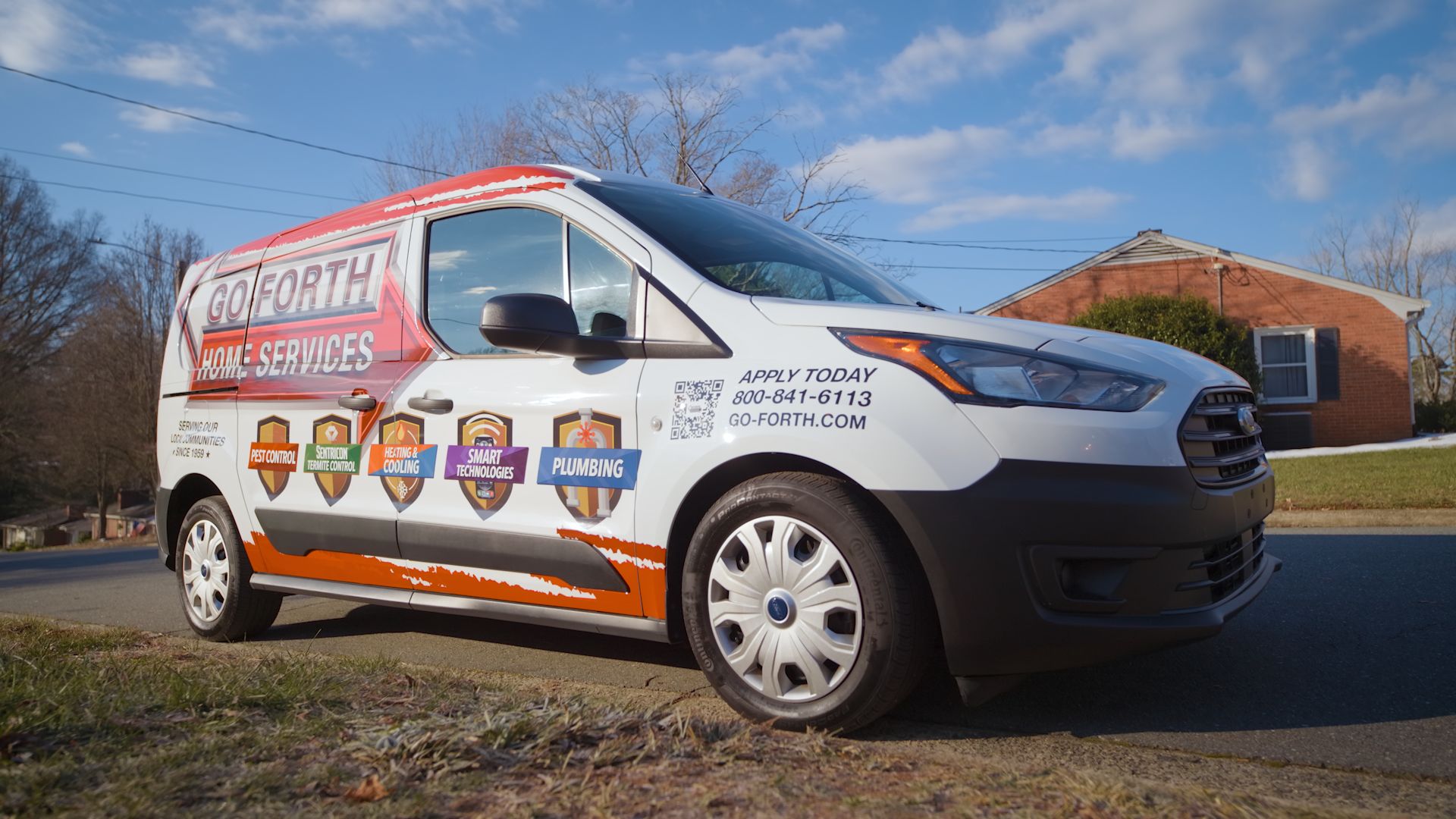Training for Pest Control Business (What Every Owner Should Know)

Proper training is essential to running a successful pest control business. It ensures your team is knowledgeable, compliant, and prepared to deliver high-quality pest control services—whether dealing with termites, bed bugs, rodents, or general infestations.
In an industry shaped by evolving regulations, customer expectations, and complex pest management techniques, practical training builds long-term efficiency and trust.
This guide will walk business owners through the core skills every pest control technician needs, the best training methods available, and how to build a training program that supports service quality and growth.
We’ll also explore certification requirements, online courses, and how technology, such as FieldRoutes, can simplify training, track applicator licenses, and streamline operations in real-time. Whether you're a startup or an established provider, this resource will help you improve technician performance, reduce callbacks, and stay competitive in the pest control industry.
Why Is Training Essential for Pest Control Businesses?
Training is the foundation of every successful pest control business.
Without well-trained technicians, service quality suffers, compliance risks increase, and customer satisfaction drops.
A great company ensures employee satisfaction and positive customer experiences, which are crucial for maintaining high service standards. Whether you’re focused on termite control, fumigation, or general pest management, structured pest control training is vital for delivering consistent, safe, and effective results. Additionally, tailored pest control treatments are essential for effective pest elimination and prevention.
Proper training ensures:
Technician competence – Skilled technicians know how to identify types of pests, use pesticides correctly, and follow integrated pest management (IPM) protocols.
Compliance with regulations – State laws require pesticide applicators to hold a valid pest control license and complete CEU or recertification courses.
Customer confidence – When clients see years of experience, professional service, and accurate follow-up, it strengthens your reputation.
Lower risk of incidents – Education reduces accidents, misuse of chemicals, and liability, which protects both customers and your team.
Effective nuisance management—Pests like cockroaches and rodents are not just nuisances; they can cause significant issues. Professional pest control services are necessary to eliminate these nuisances and prevent future infestations.
Protection from harmful diseases – Pests such as roaches and mosquitoes pose serious health risks by carrying diseases that can be harmful. Effective pest control is crucial to protect both homes and the health of individuals from these threats.
Investing in training directly improves performance, reduces turnover, and supports long-term business growth.
What Are the Key Skills Every Pest Control Technician Needs?
Technical and interpersonal skills are key to delivering reliable pest control services and earning customer trust. Pest control is a year-round business that requires consistent management and prevention of pest threats.
Technicians need to be able to identify and address any pest problem to get a thorough and lasting solution.
Also, offering free pest re-treatment if pests return between scheduled services reinforces the service's value and gives customers peace of mind.
Technical knowledge
Technicians need to know how to identify different pests, including cockroaches, termites, rodents, and bed bugs. They should understand the biology and behavior of each species to apply targeted solutions. Regular pest control treatment is necessary to manage ongoing pest issues and protect the home.
Proper pesticide use and integrated pest management (IPM) techniques ensure treatments are safe and effective. Monitoring and managing pest activity helps to tailor follow-up treatments and maintain a pest-free environment.
Safety & compliance
Pest control technicians must show concern for clients' properties and pets by following all safety protocols, including proper use of personal protective equipment (PPE) and adherence to OSHA standards.
Safe pesticide handling is crucial for preventing health risks and environmental contamination. Keeping up with continuing education and local licensing laws ensures long-term compliance.
Customer service
Technicians are the face of your pest control business. They need to communicate clearly, explain treatments, and address concerns respectfully. Encourage customers to contact your team for assistance, quotes, or estimates so they feel supported and informed.
Positive interactions lead to happy customers, good reviews, and repeat business. Offering a free inspection can also help potential customers assess pest issues without any financial commitment, as a first step to a tailored treatment plan to address specific infestations.
Problem-solving
Every infestation is different, and protecting your home and family from pests requires a skilled technician who can assess property conditions, identify root causes, and adjust treatment plans as needed.
Quick thinking and a methodical approach are vital for effective pest management, and our pest control company takes pride in its expertise in addressing a wide range of pest issues.
Time & route management
Efficient routing helps your team cover more ground and avoid delays. With tools like FieldRoutes’ route optimization software, techs can manage daily schedules, reduce travel time, and improve on-time service delivery.
Let’s look at how pest control businesses can train their technicians to develop these skills.
What Are the Best Pest Control Training Methods?
Training methods should be practical, flexible, and compliant to meet the diverse needs of pest control businesses and their technicians. Providing peace of mind through satisfaction guarantees and effective pest control services is key to customer trust and loyalty.
Comprehensive treatments are key to delivering thorough pest control solutions that not only eliminate existing pests but also prevent future infestations, thereby protecting homes and families in the long term.
1. On-the-job training
On-the-job training provides new pest control technicians with hands-on experience in addressing actual infestations and interacting with clients. They learn to assess pest issues, including specific pests like carpenter ants, apply treatments, and follow safety protocols in real-world conditions. Pairing new hires with experienced pest management professionals helps to build skills faster and ensures consistency across your team.
This type of job training also strengthens your internal processes and reinforces your company’s service standards. Use FieldRoutes to assign digital training materials or track technician progress in the field.
2. Certification & licensing programs
Most states require technicians to pass a certification exam before becoming licensed pesticide applicators. Licensing may include categories such as structural pest control, termite control, or fumigation. Business owners must stay up-to-date on local continuing education units (CEUs) and recertification requirements to effectively address various pest issues.
Online and in-person education training courses are offered by universities, extension services, and industry associations. Look for programs that align with your state’s pest control license requirements and offer updated training on pesticides, laws, and safety. These programs often cover specific pest problems, such as roaches, which are a significant health risk and nuisance in homes.
3. Online training platforms & courses
Online courses allow pest control operators and technicians to learn at their own pace, enabling them to address pest issues and infestations effectively. They’re ideal for covering topics like integrated pest management (IPM), pest biology, and application techniques without pulling technicians out of the field.
The NPMA Learning Center offers structured pest control training, including CEU credits and a comprehensive FAQ section. Other platforms provide mobile-friendly lessons that are well-suited for small businesses with remote teams. These courses also cover various insects, such as carpenter ants and spiders, which can require professional pest control services. Combine these resources with internal checklists and progress tracking tools, such as FieldRoutes, for greater accountability.
4. Workshops & industry conferences
Attending pest control workshops or industry conferences keeps your team updated on trends, new products, and regulations, and helps monitor and manage pest activity. Live demonstrations, vendor exhibits, and expert-led sessions offer practical learning that complements day-to-day experience. These events also show how different areas of a home can be treated to address pest problems.
These events are also great for team development.
Technicians gain exposure to new equipment, pest control strategies, and software tools, which can translate into improved field performance and service quality.
How Can You Develop an Effective Pest Control Training Program
A structured training program ensures technicians meet service standards, stay compliant, and adapt to changes in the pest control industry. Addressing specific pest issues, such as mosquitoes, is key to protecting health and property.
Developing a comprehensive pest control plan will equip technicians to address a wide range of pest conditions and issues.
Step 1. Assess training needs
Start by evaluating your team’s current knowledge and experience. Are technicians confident in identifying types of pests, applying pesticides, or following integrated pest management (IPM) practices? Address specific pest issues, such as fire ants, to ensure comprehensive coverage. Identify performance gaps through customer feedback, service call trends, or field performance metrics.
Check your state’s pest control license and certification requirements. Many states require continuing education units (CEUs) and recertification for pesticide applicators. Stay aware of federal safety and OSHA compliance standards that apply to the handling of chemicals and structural pest control. Assessments should include both soft skills (such as communication) and technical skills (such as termite inspections and insect control).
Step 2. Structure a training plan
Eliminate pest issues by designing a training program that includes theory, hands-on job training, and ongoing education. For balance, blend online courses with in-person shadowing and classroom-style instruction. This approach not only addresses immediate pest problems but also contributes to maintaining a healthy environment.
Create modules on pesticide safety, IPM techniques, PPE usage, and customer communication. Include training on new tools, such as mobile software, and updated processes for follow-ups and documentation. Set clear milestones, like completing a pest control course, passing a licensing exam, or conducting a supervised treatment. Use benchmarks to measure progress across your team and identify who may need extra support.
Step 3. Track progress and certifications
Keeping accurate training records is key for compliance and inspections. Store all documentation digitally to avoid paper tracking issues and have quick access when needed. This is especially important for specific pest issues, such as spiders, that require ongoing monitoring and documentation.
Utilize FieldRoutes to streamline certification tracking, automate renewal alerts, and track progress. The platform enables business owners to view technician training status in real-time, reducing administrative work and ensuring no one falls behind. Documenting CEU completions, online training, and internal job training helps you maintain service quality and licensing with less manual effort, ultimately protecting your house from various pests.
Next, let’s look at the most common challenges pest control businesses face when managing technician training—and how to overcome them.
What Are the Most Common Training Challenges in Pest Control?
Practical training of technicians can be challenging, especially when managing day-to-day operations, regulatory changes, and increasing customer demand.
1. High technician turnover rates
Turnover remains one of the biggest issues in the pest control industry. Many small businesses struggle to retain pest control operators due to burnout, a lack of advancement opportunities, or poor onboarding experiences. Ants, for example, are a common household pest that requires consistent and knowledgeable staff to manage effectively. Without a consistent staff, maintaining service quality and customer satisfaction becomes more challenging.
To reduce turnover, develop a supportive training program that incorporates mentorship, realistic expectations, and opportunities for professional growth and development. Employ tools like FieldRoutes to streamline new hire onboarding and monitor performance from the very first day. Offering clear career paths, online courses, and industry-recognized certifications can help turn short-term jobs into long-term pest control careers, while also ensuring that operators are well-equipped to prevent the transmission of diseases through effective pest management.
2. Balancing training with operational demands
In fast-paced pest control businesses, it’s challenging to remove technicians from the field for education without disrupting workflows. However, proper training is crucial in preventing future infestations by addressing pest issues effectively. Skipping training, however, often leads to service errors, compliance risks, and more callbacks.
The solution is to embed training into daily operations. Use mobile apps that allow techs to access short lessons between jobs or at the start of shifts.
This approach helps manage ongoing pest threats by informing technicians about pests' seasonal behaviors. Combine hands-on job training with microlearning modules and assign bite-sized online training tasks every week. This keeps learning active without overwhelming your schedule or revenue goals.
3. Keeping up with evolving industry regulations and technologies
From pesticide regulations to new application tools and integrated pest management (IPM) techniques, the pest control industry is evolving rapidly. Business owners must stay compliant with CEU and recertification course requirements while also keeping teams updated on the latest methods for termite control, rodent control, and common household pests.
Providing customers with peace of mind is crucial, and staying informed about the latest industry standards helps achieve this. To stay ahead, subscribe to industry updates, attend conferences, and assign annual refresher education courses. Use FieldRoutes to automate license tracking and send renewal alerts. Digital workflows and real-time updates ensure your team always operates in line with the latest safety and compliance standards.
Let’s now see how FieldRoutes helps pest control businesses simplify and scale technician training across their teams.
How Can FieldRoutes Improve Training Efficiency?
FieldRoutes simplifies and scales training by integrating automation, mobile access, and performance tracking into everyday operations, allowing the same technician to provide consistent service.
These tools reduce admin work, increase technician engagement, and ensure consistent compliance across your team. FieldRoutes also allows you to develop a customized plan, creating tailored pest control strategies that effectively address specific issues.
Automated training & certification tracking
FieldRoutes enables you to track certifications in one central location, allowing you to address pest problems efficiently. Set automatic reminders for license renewals, CEU deadlines, and recertification courses to stay on top of your professional obligations. This helps your business stay compliant with pesticide regulations and structural pest control laws without manual oversight, while also protecting homes and families from potential pest threats.
Mobile-friendly technician portal
Technicians can access training checklists, educational resources, and assessments from their phones or tablets, ensuring they are well-prepared to prevent future infestations. This flexibility supports on-the-job learning without requiring staff to be pulled out of the field. Whether reviewing pest control procedures, managing bait stations, or updating IPM knowledge, all information is available in real-time.
Digital checklists & reporting tools
Standardize your training and assessment methods for technicians using digital inspection forms to protect homes and families from pest infestations. Use custom forms to monitor safety compliance, treatment accuracy, and progress throughout your training program. These reports keep your team accountable and maintain high service quality by effectively addressing various common pests.
Scheduling & route optimization
With route optimization, your company can allocate time for training without compromising productivity, thereby showcasing its reputation and expertise in the pest control industry. FieldRoutes helps you build schedules that balance client needs with technician development and growth, ensuring that training no longer competes with daily appointments.
Performance analytics & reporting
Track each technician’s productivity, customer feedback, and task completion in real time. FieldRoutes provides performance dashboards that help business owners identify skill gaps and coaching opportunities. Utilize this data to enhance your training program and enhance technician retention.
Let’s wrap up with a quick summary – and a simple way to take the next step.
It’s Your Turn Now
Practical training is more than a compliance requirement—it’s a direct path to delivering better service, fostering stronger customer relationships, and driving long-term business growth. From mastering pesticide safety and pest identification to managing technician performance and streamlining workflows, the right training program helps your pest control business stay competitive in a demanding market.
We’ve covered how to build a structured program, select the correct training methods, and overcome common challenges such as high turnover and evolving regulations. You’ve also seen how FieldRoutes supports technician training through automation, mobile access, and real-time analytics.
Schedule your free demo to explore how FieldRoutes can help you simplify training, improve service quality, and scale your pest control business with confidence.





